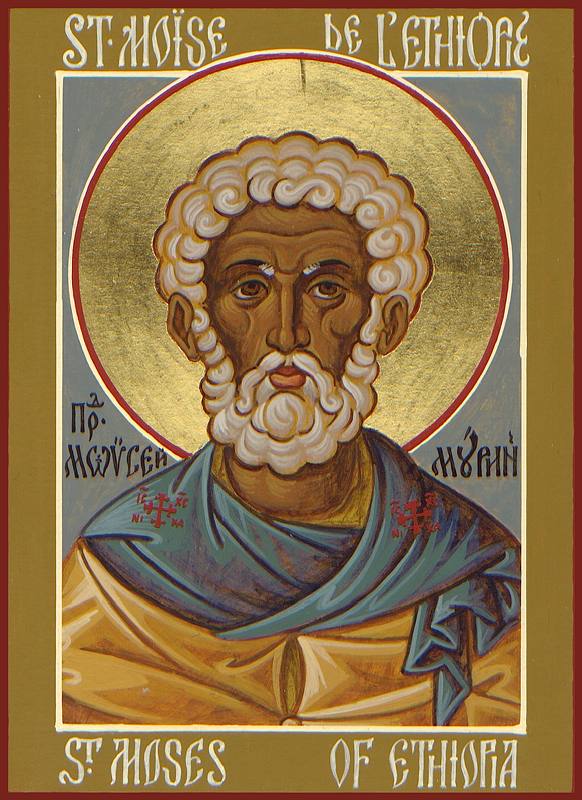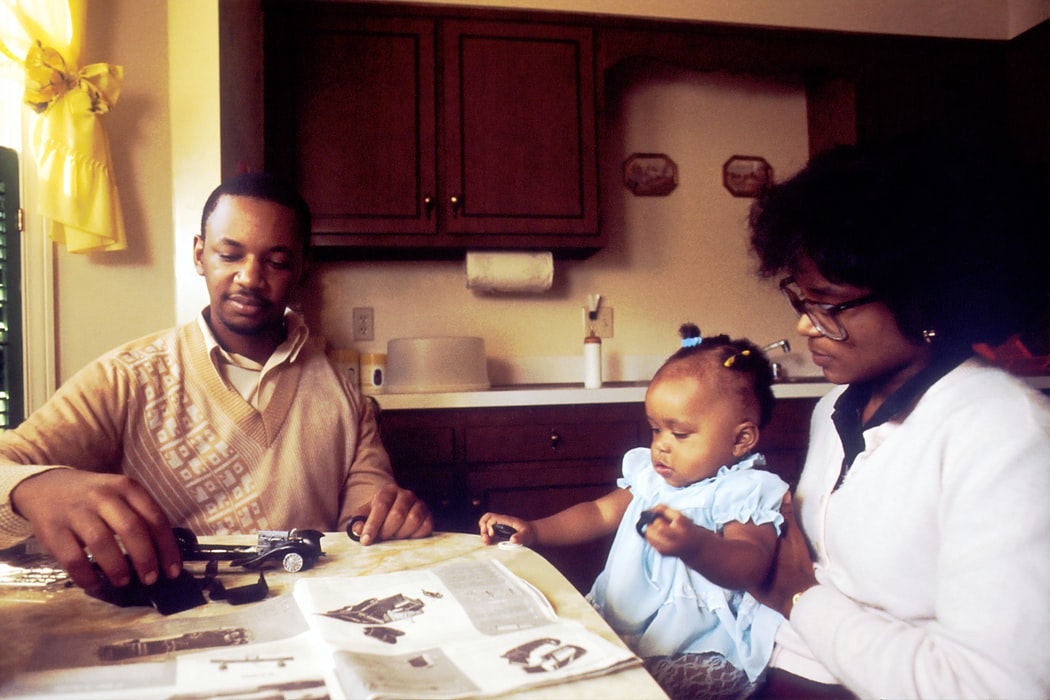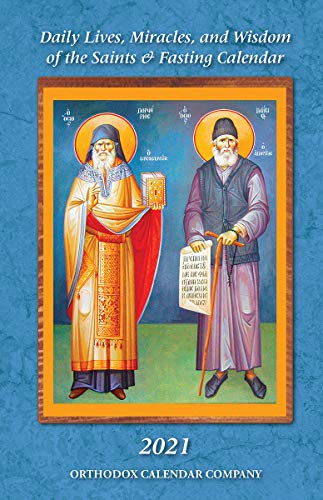I kept hearing the same tidbit of advice as I began visiting Orthodox churches—during the homily, from a guest priest at a Clean Monday retreat, and from a visiting monk (a term that I couldn’t have imagined writing just a few years previously).

“Read the lives of the saints!” they said. And I thought, “Why?” I had nothing against the idea, but, since paying attention to saints was new to me, I think I interpreted the advice as, “Read biographies!” I like biographies, but I also like historical fiction, mysteries, and practical books on the Christian life.
My spiritual reading in the past included the Bible, of course, some inspirational books by Protestant pastors, and, to expand my horizons a bit, even the occasional Catholic author, such as St. John of the Cross and the late Henri Nouwen.

I knew that as Christians, we need to be careful about the things that we allow into our minds. I had also memorized the categories of things to think about: “whatever things are true, whatever things are noble, whatever things are just, whatever things are pure, whatever things are lovely, whatever things are of good report, if there is any virtue and if there is anything praiseworthy—meditate on these things” (Phil. 4:8).
Of course, the lives and teachings of the saints fit into all of these categories. But I thought such materials were simply one option among many. Still, I figured I shouldn’t ignore advice from spiritual fathers.
The saints are cleansed mirrors in which the beauty and might of the majestic person of Christ is seen. They are the fruit on the Tree of Life; the Tree is Christ and the fruit are the saints. … As grapes on the vine, so the saints grew on Christ. What the sun is among the stars and the king is among his nobles, so Christ is among the saints. — Nikolai, Bishop of Ohrid, 1928, Preface to The Prologue of Ohrid
Okay, I need all the help I can get. So I started small.
Adding Saints to My Prayer Rule
My priest had suggested a spiral-bound book that contained the daily Scripture readings and a short biography of a saint who is honored on that day. (I’ll tell you more about it and a few other resources at the end of this episode.) So I bought a copy and began using it as a part of my prayer rule.
In the beginning, except for people I recognized from the Bible, the vast majority of the saints were strangers to me. But by reading consistently over the years, just one short biographical sketch each morning, I began to remember a few of them. Some saints were already popular and well loved among the faithful; others stuck with me because of their words and actions.
And over time, I began to experience encouragement and instruction in a way that somehow felt different from, and yet a continuation of, the words of Scripture. I began to recognize the shape of a truly godly life. Martyrdom was a common theme. So was commitment to the Orthodox Faith in the face of heretical teachings and persecution. I read about lives of rigorous asceticism, radical forgiveness, and sacrificial generosity to the poor. Lives marked by giving up all for Christ: possessions, power, reputation, comfort, and even life itself.
The saints show us what it means to live a life in Christ.
When I read the lives of the Saints as a child, I felt as though a ray of divine light had entered my heart. It filled my heart with sweetness, joy and jubilation and lit a desire and love for God and heavenly things. Then, whether I was eating, walking or speaking with others, my mind was contemplating heavenly things and my heart was riveted to God. — Elder Philotheos Zervakos
I discovered a great comfort and help from the lives and words of the saints. Now my days feel incomplete if I haven’t read at least a snippet of wisdom from these brothers and sisters who point us to Christ and who also pray for us.
Here are just three benefits of adding the lives and words of the saints to our daily lives.
Benefits of Studying the Lives of the Saints
1. The Saints Encourage Us in Our Struggles Against the Passions
There are countless soul-stirring examples of how a sinner becomes a righteous man in the Lives of the Saints: how a thief, a fornicator, a drunkard, a sensualist, a murderer, an adulterer becomes a holy man. — Venerable Justin (Popovic) of Chelije in Serbia, Orthodox Faith and Life in Christ, p.49

When I am discouraged with my own failings, the struggles of the saints and their victories through God’s grace offer me hope and inspiration.
Saint Moses the Ethiopian was a fourth-century murderer who led a band of robbers, then repented and became a monk. Yet he struggled with lust for many years, battling this passion through eating less, keeping all-night vigil in prayer, humbling himself, and obeying his spiritual father, whose prayer freed him from this bondage. His fellow criminals, seeing St. Moses’ mercy and humility, all became dedicated monks. His story brings hope to those who struggle with lust.
Learn to war with your passions—this is very important, and even imperative. The best guide for you will be the Lives of the Saints. The world abandoned this reading long ago, but don’t conform to the world, and this reading will console you greatly. In the Lives of Saints you’ll find instructions on how to conduct warfare against the spirit of evil and remain the victor. May the Lord help you. — St. Barsanuphius of Optina
New Martyr Nicholas of Chios in the 18th century experienced the loss of rational thought for many years; in the 19th century, St. Panagis Basias of Cephalonia, the clairvoyant and fool for Christ, suffered a nervous breakdown.
The saints, like the rest of us, have struggled with mental illness; they have been alcoholics, adulterers, murderers, and thieves. And yet, through their repentance, ascesis, and prayer, the grace of God so infused them that they became deified, examples of Christ at work in His people. They inspire me to press on when I am tempted to despair over my own failings.
2. The Saints are Scriptures Brought to Life
They have lived out God’s commandments in practice, taking up their crosses daily in self-denial, loving others unconditionally, and serving God consistently in prayer and worship.
We can be greatly helped in our labour to acquire the virtues, if we have the saints as exemplars of sanctity. — St. Paisios

For example, what does St. Paul mean when he tells us to “pray without ceasing” (1 Thess. 5:17)? Apart from the wisdom of the Church, people have come up with many ways—some of them bizarre—to practice unceasing prayer. I remember a friend telling me about a young man at a charismatic, Evangelical university who was convinced that this verse was a command to pray aloud at all times. So he mumbled in prayer on the sidewalk, while driving, and in the cafeteria line.
Imagine being stuck on an elevator with that guy.
But many saints throughout the centuries have already shown us, through their lives and their teachings, how to cultivate ceaseless prayer.
As the most effective prayer the Church Fathers use the short phrase, “Lord Jesus Christ, have mercy on me.” This prayer is the key to the spiritual life. It is a prayer that cannot be taught either by books, or by spiritual fathers or by anyone else. Its sole teacher is divine grace. — St. Porphyrios of Kavsokalyva
Saint Seraphim of Sarov, the wonder-working 18th-century monastic, spent a thousand days, with little rest, on a rock near his hermitage during the day and in the thick of the forest at night, his arms raised to heaven in prayer.
I can guarantee that I will not be doing this during my lifetime. Yet, reading about St. Seraphim’s spiritual feat, I’m aware that I could spend a few minutes each night in prayer in a more systematic way, if I would only commit to a little discipline.
Saint Ignatius Brianchaninov, a nineteenth-century Russian saint who lived a life of prayer, advises us, “Nighttime is particularly helpful for the prayer of Jesus on account of the darkness and silence” (On the Prayer of Jesus, p.24). Now, that I can put into practice, especially during those times of awakening at three and four a.m.
What about one of Jesus’ more difficult teachings from the Sermon on the Mount in Matthew 5?
You have heard that it was said, “An eye for an eye and a tooth for a tooth.” But I tell you not to resist an evil person. But whoever slaps you on your right cheek, turn the other to him also. If anyone wants to sue you and take away your tunic, let him have your cloak also. (vv. 38-40)
The life of St. Nektarios of Pentapolis, who died in 1920, shows us the way. He practiced deep humility and abiding faith in the face of repeated injustices. He was slandered by his fellow priests, who were jealous of his popularity with the people, exiled by his bishop, and forced to live in extreme poverty when he was not paid for his service. Yet he never once complained, continuing to pray and serve, preach and write, living in purity and love.
As for me, I get upset when I think one person might have a low opinion of me. Christ’s love came to life in St. Nektarios, and his example encourages me to let go of my defensiveness and to set my mind on God’s perspective, not the opinions of others.
This leads to the third benefit of reading the lives of the saints and contemplating their words.
3. The Saints Inspire Us to Work Out Our Salvation with Diligence
For many years I was a stay-at-home mom. With four children spaced two years apart, a life of prayer in a monastic cell was not a possibility for me, even if I could have conceived of such a thing. So, left to my own devices, my own interpretation of Scripture, and the latest bestselling Christian book, I easily settled into evaluating my spiritual progress either in terms of what I didn’t do—I didn’t cuss today, I didn’t snap at the kids—or what I did do: I memorized a Bible verse, I wrote a check to the food pantry, I completed my quiet time.
But the lives of the saints show us what’s possible in a life wholly devoted to Christ—ways to love our neighbors and to devote ourselves to prayer even when it’s difficult. Ways to practice a deep and fervent faith that does not depend on circumstances and feelings.
I need these examples, because I am too easily distracted. Too easily reliant on a checklist of spiritual practices. Too dependent on emotion as a gauge of my spiritual state.
Saint Juliana of Lazarevo, a married mother of seven who lived in 16th-century Russia, devoted herself to serving the poor and needy while living a busy, domestic life. After her husband’s death, she distributed her inheritance to the poor and lived in poverty, thanking the Lord for all things. Her Wikipedia entry notes that “her life is considered as an example of a layman living in the world, as anyone may be supposed to please God not only by withdrawing from the world to a monastic cell, but within a family, amid cares for children, spouse, and members of the household.”

I need her example, as well as the example of St. Hilda, my patron saint, who was the abbess of a double monastery for men and women in eighth-century Whitby, England. She devoted herself to prayer and study. During the final seven years of her life she suffered from continual fever yet continued to serve the Lord in the midst of her infirmity.
Do I have the time, circumstances, or skills to live exactly as these saints did? No. But they show us paths of prayer and perseverance in the life of faith.
By studying the lives of the saints, our soul is warmed and motivated to imitate them, and to proceed with manly courage in the struggle to acquire the virtues. We realize that all the saints had the same type of spiritual madness, except that it appears in a different form in each of them. We can see the love (eros) they had for God, which, in turn, kindles divine zeal with us to imitate them. — St. Paisios of Mt. Athos
Some Helpful Resources

So, where to begin?
Years ago I started buying an annual copy of Daily Lives, Miracles, and Wisdom of the Saints & Fasting Calendar, first in a spiral-bound paper copy and then the Kindle edition so that I can access it on my phone. Each day’s entry notes the fasting rule for the day, the Gospel and Epistle readings, a quotation from a saint, a mini-biography of a saint whose feast is celebrated on that day, and a list of other saints who share that feast day.
Through my priest I discovered the two-volume set, The Prologue of Ohrid by St. Nikolai Velimorovic. It’s pricey—the set available from the Ancient Faith store is $135, but the volumes are hardcover, and you will use them for decades. Each day’s reading includes the biographies of four saints (one longer story and three shorter ones), a hymn of praise by St. Nikolai, a Reflection, a Contemplation of a Scripture passage, and a homily.
I don’t always have time to read the day’s pages, but when I do, each day’s reading provides a nugget of wisdom to think about.
There are also many books available that compile the teachings of the saints and tell us about their lives. Some of my favorites include Father Arseny, 1893-1973: Priest, Prisoner, Spiritual Father and Our Thoughts Determine Our Lives: The Life and Teachings of Elder Thaddeus of Vitovnika. Currently I am working through My Life in Christ by St. Ignatius Brianchaninov. Because the book is a compilation of St. Ignatius’s spiritual journals, the reflections are deep, and I think I’ll still be plowing through it a year from now.
As always, talk to your priest and ask for recommendations. He may know just what your soul needs right now.
As Abbot Tryphon writes in the post “The Saints Are Alive” from his blog, The Morning Offering,
The saints show us what a glorious destiny we have in God, and through the example of their lives, they point the way to our becoming “partakers of divine nature.” The saints, as the cloud of witnesses in heaven, are present in the divine services, worshiping the Holy Trinity with us. They, as our friends, intercede before the Throne of God on our behalf, having won the good fight, and we are encouraged by the memory and example of their lives, as we struggle on our own path to God. — Abbot Tryphon
The saints I’ve met in the pages of various books were men and women, young and old, Greek, Ethiopian, Russian, English, Egyptian, French, and German. They were members of the nobility and peasants, slaves and free. Through their lives we see how God has deified real men and women from every tribe and nation. They renew our hope.
May you be blessed by your spiritual family across time.
Very helpful thoughts on the value of reading the lives of the Saints, thank you! For those who want to order the calendar you recommended directly from the publisher (they do better financially this way than if you order via Amazon), here’s their website: https://www.livesofthesaintscalendar.com.
Thank you, Phil! Excellent advice. Same with Ancient Faith books. It’s always better to order from the AFP store than from Amazon.
My names is Gordon James. I am a recovering alcoholic in Alcoholics Anonymous and an Orthodox Christian. It took me about 15 years to get from AA to Orthodoxy. My Patron Saint is The Apostle Saint James The Less. My birthday and his commemorative day are the same. That’s how God works!
I’m retired. I attend meetings with my friends and help out where I can. I go to church as much as is offered. I’m now a good husband, father and grandfather. I love being at home and in prayer. Instead of buying a Harley, I bought a Prayerbook. I too remain behind the scenes. That’s how God works!
Such a wonderful patron saint!